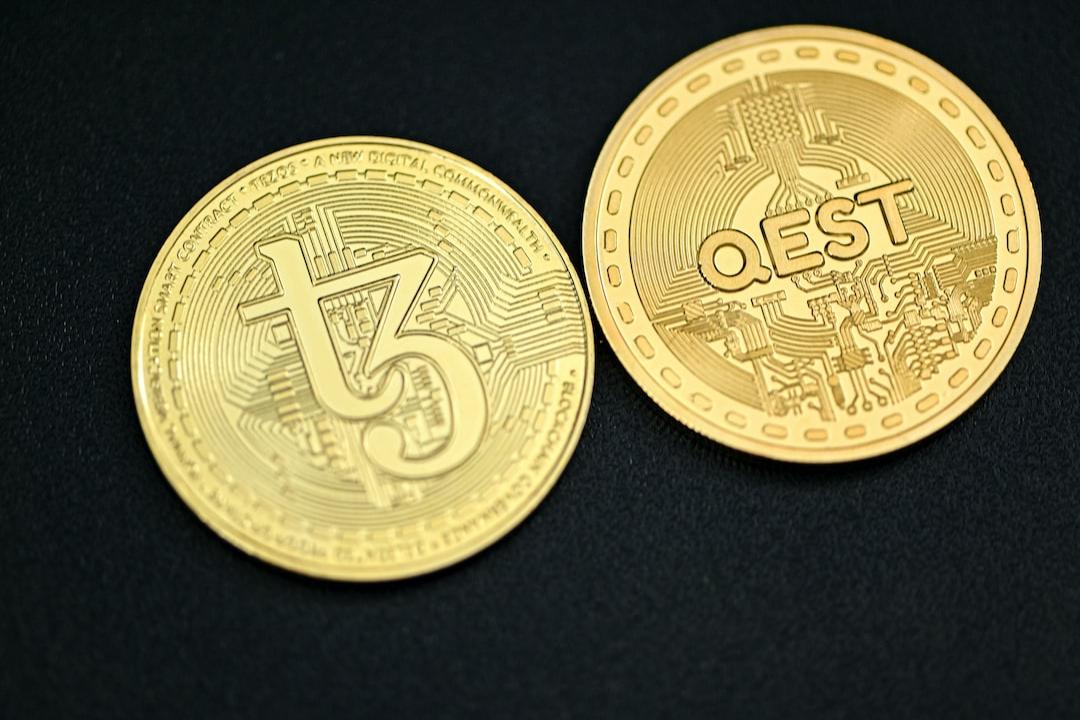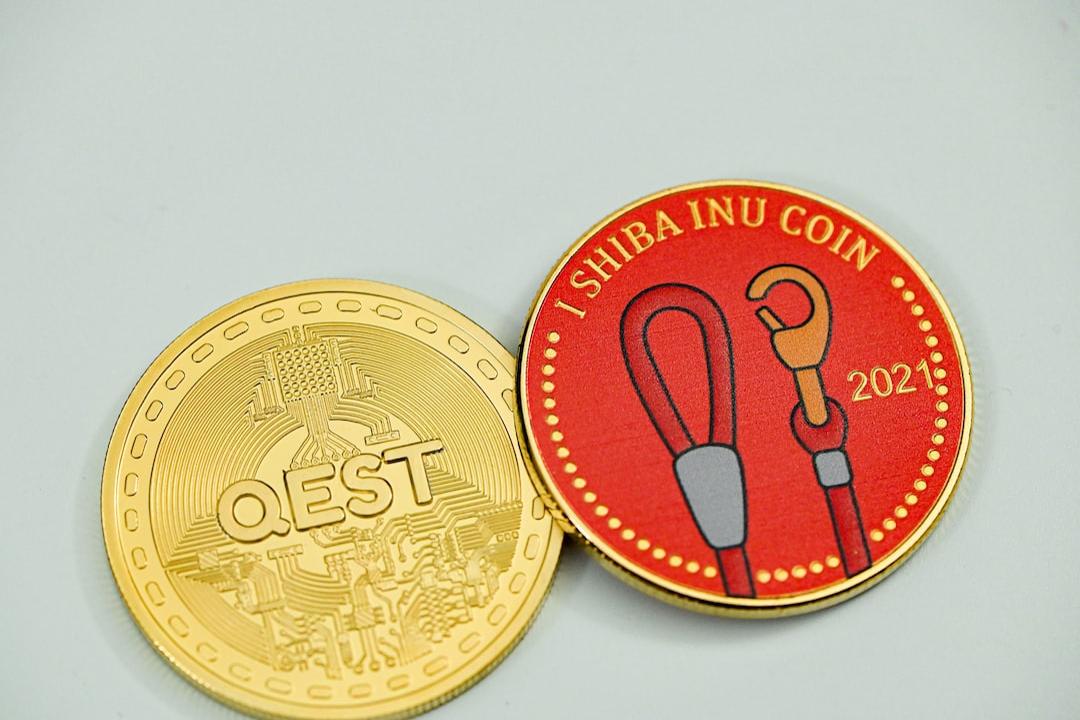The emergence of crypto credit cards has provided users with a seamless integration of cryptocurrency and everyday consumption. Whether it’s shopping, traveling, or online payments, crypto credit cards allow cardholders to use their crypto assets anywhere that accepts credit cards. This innovation not only enhances the practical application of cryptocurrencies but also brings more liquidity and transparency to the global financial market.
This article will examine the development prospects of crypto cards from the perspective of the global consumer index.
Overview of Global Economic Growth

Global economic growth is expected to reach 3.5% in 2024, higher than the 3.3% in 2023. Although this growth rate is relatively moderate, it still shows signs of recovery for the global economy after a series of challenges. Developing economies and emerging markets are the main drivers of this growth, as they continue to promote steady global economic growth through infrastructure construction, technological innovation, and industrialization.
The economy in North America is expected to continue to recover in 2024, benefiting from strong consumer spending and investment growth, especially in the technology and manufacturing sectors. Stable developments in the energy sector and increased exports also provide strong support for the North American economy.
Despite challenges such as rising energy prices and supply chain constraints, Europe still shows signs of recovery in its overall economy. Governments of European Union countries are promoting economic growth through fiscal stimulus policies and reform measures. Investments in green energy and digital transformation have become new engines for economic growth.
Asia continues to lead global economic growth, with China and India playing crucial roles as major economies. China promotes sustained economic growth through high-quality development strategies and technological innovation, while India enhances economic vitality through reform measures and infrastructure investments. In addition, the economic growth of Southeast Asian countries is also worth noting, as these countries promote economic integration through regional cooperation and trade agreements.
The economy in Latin America is expected to experience moderate recovery in 2024, benefiting from the rebound in international commodity prices and the advancement of regional integration. Brazil and Mexico, as major economies, enhance their growth potential through reform measures and policy adjustments.
The African economy continues to show strong growth momentum, driven by population dividends and resource development. Infrastructure construction and agricultural development, especially in East Africa and West Africa, have become important drivers of economic growth.
The main challenges for the global economy include inflation, geopolitical risks, and climate change. Global inflationary pressures remain high, especially driven by energy and food prices, and central banks need to balance economic growth and inflation control through monetary policy adjustments. Geopolitical risks still exist, especially competition among major powers and regional conflicts, which may affect global economic stability. Natural disasters and environmental issues caused by climate change pose long-term challenges to the global economy, and countries need to strengthen cooperation to address the impact of climate change through green economy and sustainable development measures.
Global Trends in Crypto Card Business Development
With the recovery of the global economy and the upgrading of consumption, the market size of crypto credit card business continues to expand. Crypto credit cards refer to credit cards that allow users to make payments and transactions using cryptocurrencies. It is predicted that the global market size of crypto credit cards will reach billions of dollars in 2024, driven by the increasing popularity of cryptocurrencies and consumers’ acceptance of digital payment methods.
Crypto credit cards can be divided into two main types: regular crypto credit cards and reward crypto credit cards. Regular crypto credit cards allow users to use cryptocurrencies for daily consumption and transactions, usually in cooperation with mainstream payment networks such as Visa and Mastercard, enabling users to make cryptocurrency payments globally. Reward crypto credit cards not only allow users to make payments using cryptocurrencies but also provide reward programs based on cryptocurrencies. For example, users can receive cashback or points in cryptocurrencies such as Bitcoin and Ethereum when making purchases. These reward programs attract a large number of users who want to accumulate crypto assets through daily consumption.
The crypto credit card market can be divided into BFSI (Banking, Financial Services, and Insurance), personal consumption, and commercial use. The BFSI industry is one of the important markets for crypto credit cards, as financial institutions issue crypto credit cards to provide diversified payment and investment options to meet customers’ needs for crypto asset management. Personal consumption is the largest segment of the crypto credit card market, with a market share of 71.63% in 2022. As consumers’ acceptance of cryptocurrencies increases, the personal consumption market will continue to grow rapidly. The use of crypto credit cards in the business sector is also increasing, as many companies start accepting cryptocurrencies as a payment method. Crypto credit cards provide a convenient and secure payment method for businesses.
Innovation in crypto credit card applications is reflected in dedicated cards or hybrid cards, DeFi integration, and NFT transactions. Dedicated cards focus on specific purposes, such as travel, shopping, or online payments, attracting specific user groups by providing discounts and rewards tailored to specific consumption scenarios. Hybrid cards combine the functions of traditional credit cards and crypto credit cards, allowing users to choose between using fiat currency or cryptocurrencies for payment. The diversification of crypto credit card business is also reflected in the integration with decentralized finance (DeFi) and non-fungible token (NFT) transactions. Some crypto credit card platforms start to offer DeFi services such as lending, staking, and yield farming, while also supporting users to purchase and trade NFT assets. This multi-functional crypto credit card meets users’ diverse needs for digital assets.
Credit card companies optimize credit assessment and risk control through big data analysis and artificial intelligence technology. By analyzing consumer behavior and transaction data, credit card companies can more accurately assess credit risks and prevent fraudulent activities. Blockchain technology provides new security solutions for crypto credit card business. Through blockchain technology, credit card companies can achieve transparent, secure, and efficient payment and settlement processes, enhancing transaction credibility and security.
Analysis of Major Competitors in the Global Crypto Card Market
The global crypto credit card market is highly competitive, with major companies competing in terms of fees, supported cryptocurrencies, reward mechanisms, etc. Here is an analysis of several major competitors:
Coinbase: Mainly covers the United States and the European Economic Area (EEA). Users pay a monthly fee of 4.95 euros, and transaction fees range from 2.69% to 5.49%. Coinbase’s advantage lies in its extensive user base and good brand reputation.

Crypto.com: Has extensive market coverage in Singapore, the United States, Canada, the Asia-Pacific region, and EU countries. The uniqueness of Crypto.com lies in its staking benefits, where users can stake Crypto.com Token (CRO) to access VIP services such as airport lounges and receive cashback for subscriptions to services like Spotify and Netflix.

Wirex: Operates in Singapore, the United States, Canada, the Asia-Pacific region, and EU countries. Users can choose a monthly fee ranging from 0 to 30 euros, with a transaction fee of 2.99% and mailing costs ranging from 0 to 35 euros. Wirex’s flexible fee structure and extensive market coverage have earned it a place in the market.

Bitpanda: Primarily operates in the European market, providing euro-denominated crypto credit cards. Its overall fees are relatively low, ranging from 0.25% to 2.5% for non-eurozone transactions, with a mailing fee of 9.9 euros. Bitpanda’s uniqueness lies in its partnerships with platforms such as Amazon, XPremium, Expedia, and Airbnb, offering a wide range of rebate options.

Current Development Status of the Global Crypto Card Market
According to Chainalysis’ “2023 Global Cryptocurrency Adoption Index,” the adoption rates of cryptocurrencies vary significantly across different regions, which also affects the development of crypto credit cards and debit cards markets.
North America has a developed market for crypto credit cards and debit cards, mainly provided by companies such as Crypto.com and Coinbase. In North America, crypto enthusiasts and early adopters have a higher acceptance of crypto cards. These companies’ crypto cards support various cryptocurrencies, offer rich rewards, have overall low fees, and reasonable mailing costs.
The crypto credit card and debit card market in India is in its early stages but has tremendous potential. Although government regulations have some impact on the speed of market development, the Indian market is expected to develop rapidly as cryptocurrencies become more popular and consumers’ acceptance of digital payment methods increases.
The crypto credit card and debit card market in Nigeria is very active, with residents having a high acceptance of digital payment methods. Nigeria is one of the countries with a high adoption rate of cryptocurrencies globally, providing a solid foundation for the development of the crypto card market.
Brazil leads the crypto credit card and debit card market in Latin America, with major platforms including Binance and Coinbase. These platforms offer crypto cards that support various cryptocurrencies and diverse rebate mechanisms, which are popular among consumers.
The crypto credit card and debit card market in Turkey is also very active, with residents having a high acceptance of digital payment methods, and the use of cryptocurrencies in daily consumption is becoming increasingly common.
The Commonwealth of Independent States (CIS) region has certain regulatory restrictions on the crypto credit card market but still maintains a high interest in cryptocurrencies among residents. Ukraine is trying to support and regulate the use of cryptocurrencies through legislation, providing good prospects for the development of the crypto card market.
Differences in consumer habits around the world also have a significant impact on the adoption of crypto credit cards. For example, digital wallet transactions dominate in countries like China, the Philippines, and Indonesia, while the widespread adoption of Buy Now Pay Later (BNPL) models in Australia also affects the market acceptance of crypto credit cards. Cash payments still dominate in markets like Japan and Mexico, posing challenges to the promotion of crypto cards.
Emerging markets, especially in Asia, Africa, and Latin America, offer significant growth potential. These regions have a young population, a rising middle class, and increasing consumer purchasing power, creating a broad market space for crypto credit card business.
Rapid urbanization and internet penetration in emerging markets drive the growth of consumer demand. Crypto credit card companies can expand their business by meeting the diverse needs of different markets through localization strategies and innovative products.
At the same time, expanding business in emerging markets faces major challenges such as inadequate infrastructure, low financial literacy, and complex regulatory environments. Crypto credit card companies need to cooperate with local governments and financial institutions to overcome these challenges and promote the healthy development of their businesses.
In the coming years, the global crypto credit card business will continue to grow steadily. The development of financial technology will continue to drive innovation in crypto credit card business. Blockchain technology, artificial intelligence, and big data analysis will be widely applied to crypto credit card business, enhancing payment security and user experience. Crypto credit card companies need to focus on sustainable development, promoting long-term healthy business growth through green finance and social responsibility investments.
As the cryptocurrency market continues to develop, governments around the world will gradually improve their regulation of cryptocurrencies. Crypto credit card companies need to closely monitor regulatory trends and adjust their business strategies in a timely manner to ensure compliant operations.

